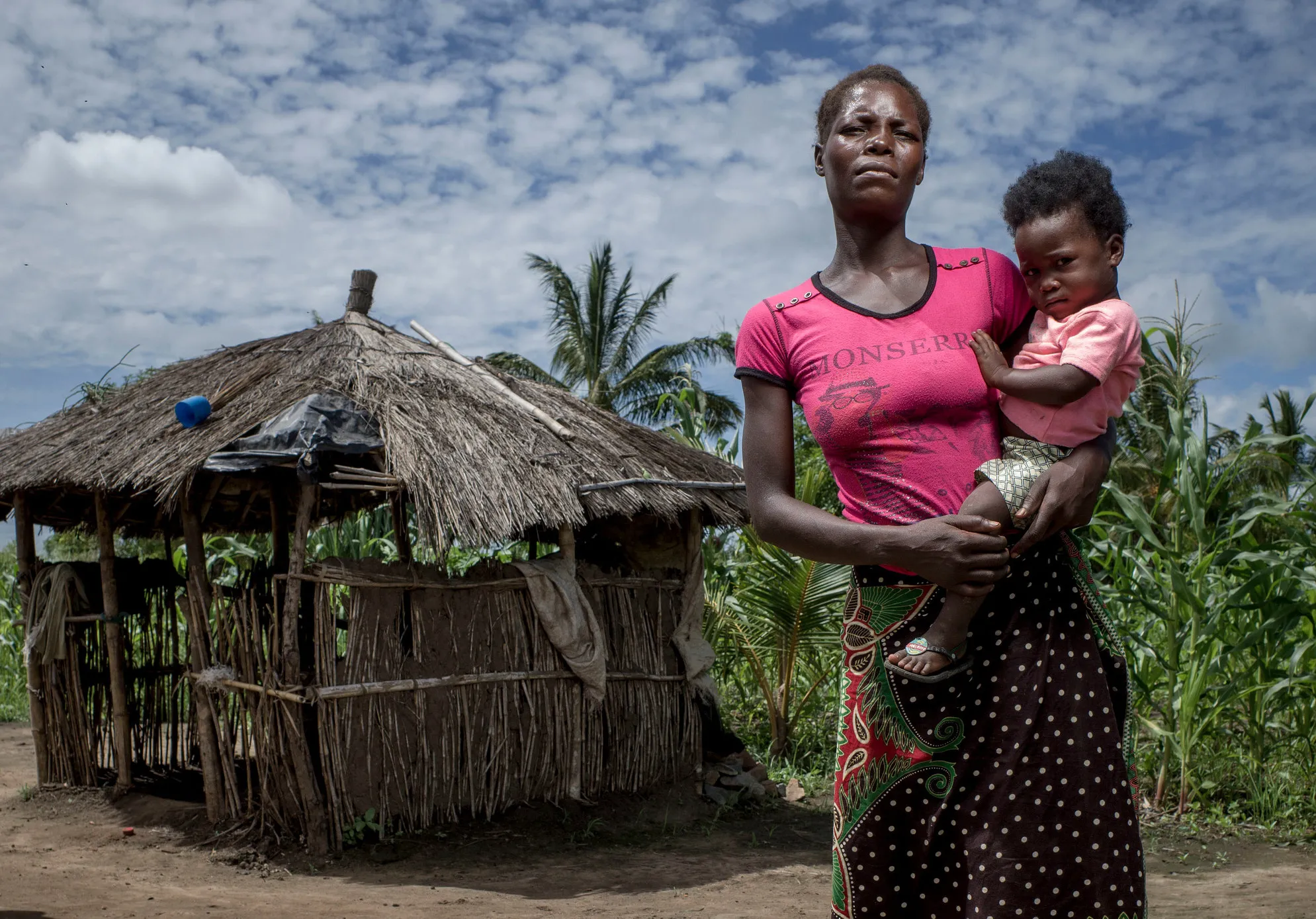Maputo, Mozambique, March 31, 2021 – An escalation of violence on March 24 by non-state armed groups in Palma district in Cabo Delgado has left dozens killed and caused thousands more to flee their homes as reported by UN-OCHA. CARE is particularly concerned about the plight of women and girls, who are vulnerable to sexual and physical violence in conflict contexts as well as being the main caregivers and often providers for their families, even when displaced.
“At the resettlement sites, fleeing civilians are arriving after walking through the bush for 2-4 days. Many of them have nothing except the clothes on their backs and are hungry, thirsty, and terrified, following the traumatic ordeal they have experienced. Not only are we receiving girls, women, and whole families but also unaccompanied children. We are also extremely concerned for those still living in the conflict-affected areas who are unable to flee or be reached by humanitarian assistance, and the vulnerable groups such as women, girls, unaccompanied children, and the elderly,” says Elias Antoniou, Emergency Team Leader at CARE Mozambique based in Pemba.
As thousands more arrive in the provincial capital of Pemba, there remains a huge funding gap with only 1% of the needs being funded. People are in dire need of psycho-social support following the traumatic experience that they endured. Other immediate needs include food, emergency shelter kits, hygiene items, such as soap and female hygiene products as well as water and sanitation services. CARE works in and around Pemba in southern Cabo Delgado, where many of those fleeing the fighting are arriving, and stands ready to assist with basic relief items, water and sanitation assistance, and other support to traumatized survivors.
CARE is working to set up safe spaces to mitigate the risks to women and girls by raising their awareness and providing them with sexual and reproductive health services. Some of the other practical measures being taken to ensure their safety include the provision of separate toilet facilities for women and girls, safe places to sleep, and proper lighting at night.
CARE and other humanitarian organizations in the area have the capacity and commitment to scale up services, but there is limited funding to do so. Humanitarian access to those in conflict-affected areas remains challenging to assist those affected with much of the area cut off and limited information coming out.
CARE has already distributed 4,876 kits comprising of 2 blankets, 2 sleeping mats, 2 tarps, 2 solar lanterns, 1 jerry can, 1 bucket, poles to create a basic tent, and a toolkit to assemble it. The distributions have been focused in government-led IDP sites located in the districts of Metuge, Montepuez, and Chiure.
As the violence continues, more people are anticipated to be displaced from Palma. This includes 43,000 who had already fled their homes from other parts of the province as a result of the attacks. The United Nations foresees that at least 5,000 civilians will arrive in Pemba over the next several days.
Antoniou adds; “The civilians fleeing the violence have been terrorized. Despite this, they are determined to put their lives back together and need our support to do so. The funding that is desperately needed is not only about giving households items but also providing an opportunity for the people to stabilize and get on with their lives as best as they can, in this unstable and insecure context.”
For More Information:
Rachel Kent
Senior Press Officer
Rachel.Kent@Care.org

